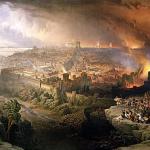A few months ago, Peter discovered an ancient songbook (circa 1960) filled with folk tunes and campfire songs. William was fascinated. We started singing some classics–“Skip to My Lou” and “On Top of Spaghetti” and “The Bear Went Over the Mountain.” Soon enough, William was asking for “a song from that book” as a part of his bedtime routine. For a while, the song of choice was “America the Beautiful.” Then a Christmas song called “The Friendly Beasts.” Now he’s on to “Silent Night” and “The Battle Hymn of the Republic.”
For those of you who don’t remember it, here is William’s rendition:
Of course I find it cute and even somewhat amusing, but it’s also somewhat alarming to hear those words come out of the mouth of an almost-three-year-old. (“Mine eyes have seen the glory of the coming of the Lord/ He is trampling out the vintage where the grapes of wrath are stored/ He has loosed his fateful judgment with his terrible swift sword/ His truth is marching on…”)
One of the other things that has happened as we sing these songs together is that William asks me about their meaning. With “Silent Night,” I got asked about “virgin” “holy” “quake” and “heavenly.” With “Battle Hymn,” the only question he has asked is, “Mom, what judgment mean?” (As it turns out, I taught it to him incorrectly. It should be “He has loosed the fateful lightning –not fearful judgment— of his terrible swift sword.” But either way, there’s a terrible swift sword involved, and as a hymn that emerged in response to slavery in the South and the cause of the Union, it certainly contains the idea of God’s judgment against human sin.)
I swallowed hard. And then I said, “Judgment is when God says no to bad things.” As I said it, I felt some of my discomfort with the idea of judgment melt away. It should bring comfort to a child to know that God says no to everything that is wrong with this world. Judgment, I realized, can bring security and hope. As much as we talk these days about being non-judgmental, as much as religious people wrongly assume they know who God is judging and why, as much as I need God’s grace instead of God’s judgment, I am nonetheless grateful that I worship a God who is also a judge. And I’d like to teach my son that worshiping a God of love includes worshiping a God of judgment. Here’s why:
First, because God is a perfect judge. Unlike those of us who can’t understand the motivations of other people, who find ourselves in ethical quandaries without a clear solution, who feel uncomfortable at the notion of judgment altogether, God knows the difference between good and evil, and when God judges, God does so justly.
Second, because evil deserves condemnation. The problem we’ve gotten ourselves into as human beings, of course, is that we often fail to distinguish between evil actions and the people who commit them. There is no person whose actions are so evil as to render them beyond the grip of God’s grace. Former slave-trader John Newton’s hymn “Amazing Grace” serves as a telling example of the grace God extends to every person, even one who had been complicit in the buying and selling of human beings. But Newton would never look back on his life as a slave trader and try to explain away the evil. God judged his actions as a slave-trader as wrong. And God nevertheless extended forgiveness, love, and redemption.
Finally, because God is love. God’s love includes judgment because God’s love casts out everything that is not loving. To understand the love of God, God’s “yes” to all that is good and true and beautiful, I must understand God’s “no” to all that divides and destroys.
William couldn’t tell you much about God’s love or God’s judgment at this stage in his life, and my erroneous rendition of the “Battle Hymn” may or may not have gotten him any closer to a better understanding of God’s character. But it helped me to remember the wholeness of God’s being as the one who hates evil and embraces good. It helped me remember the fullness of God’s love.















